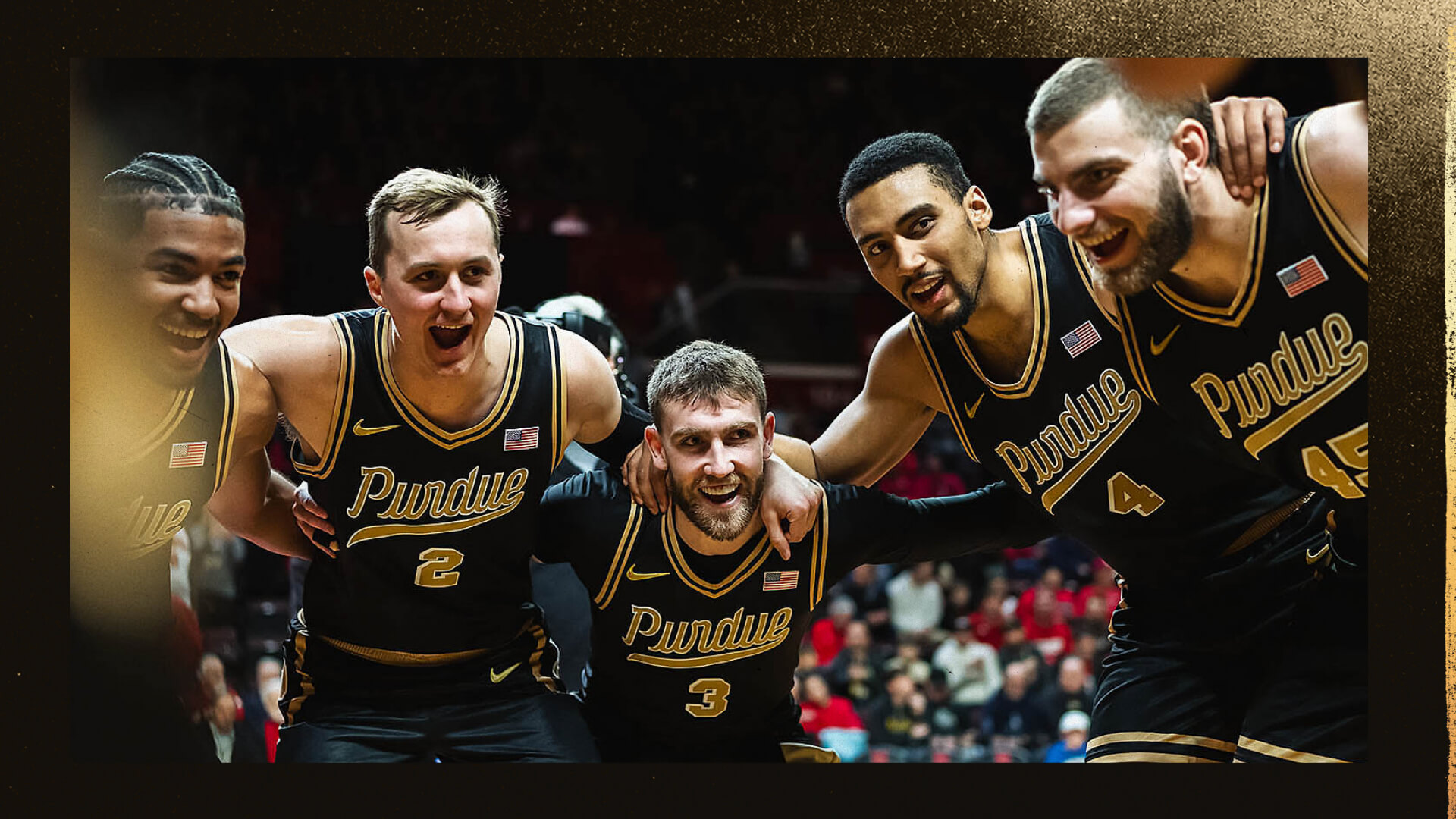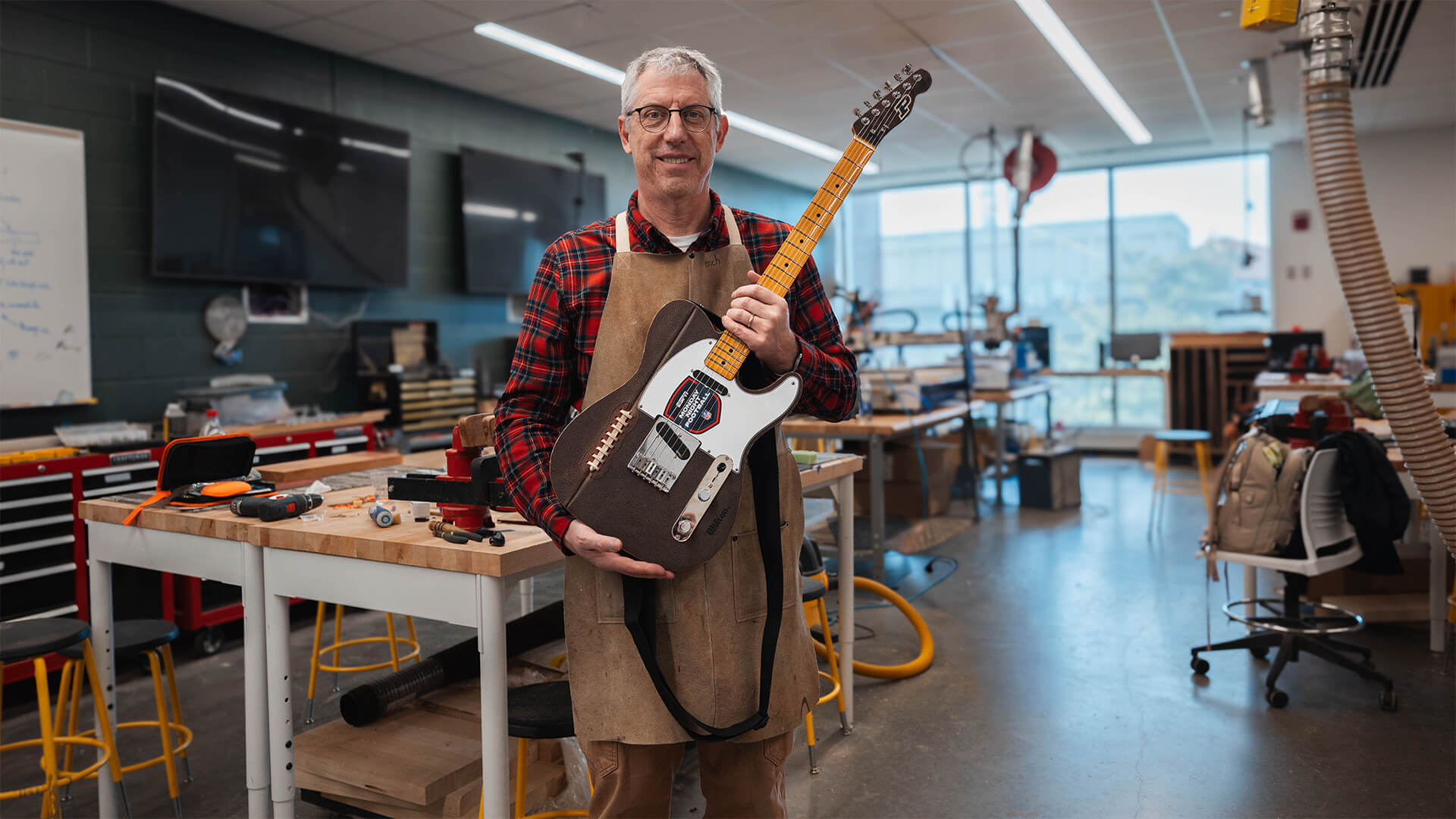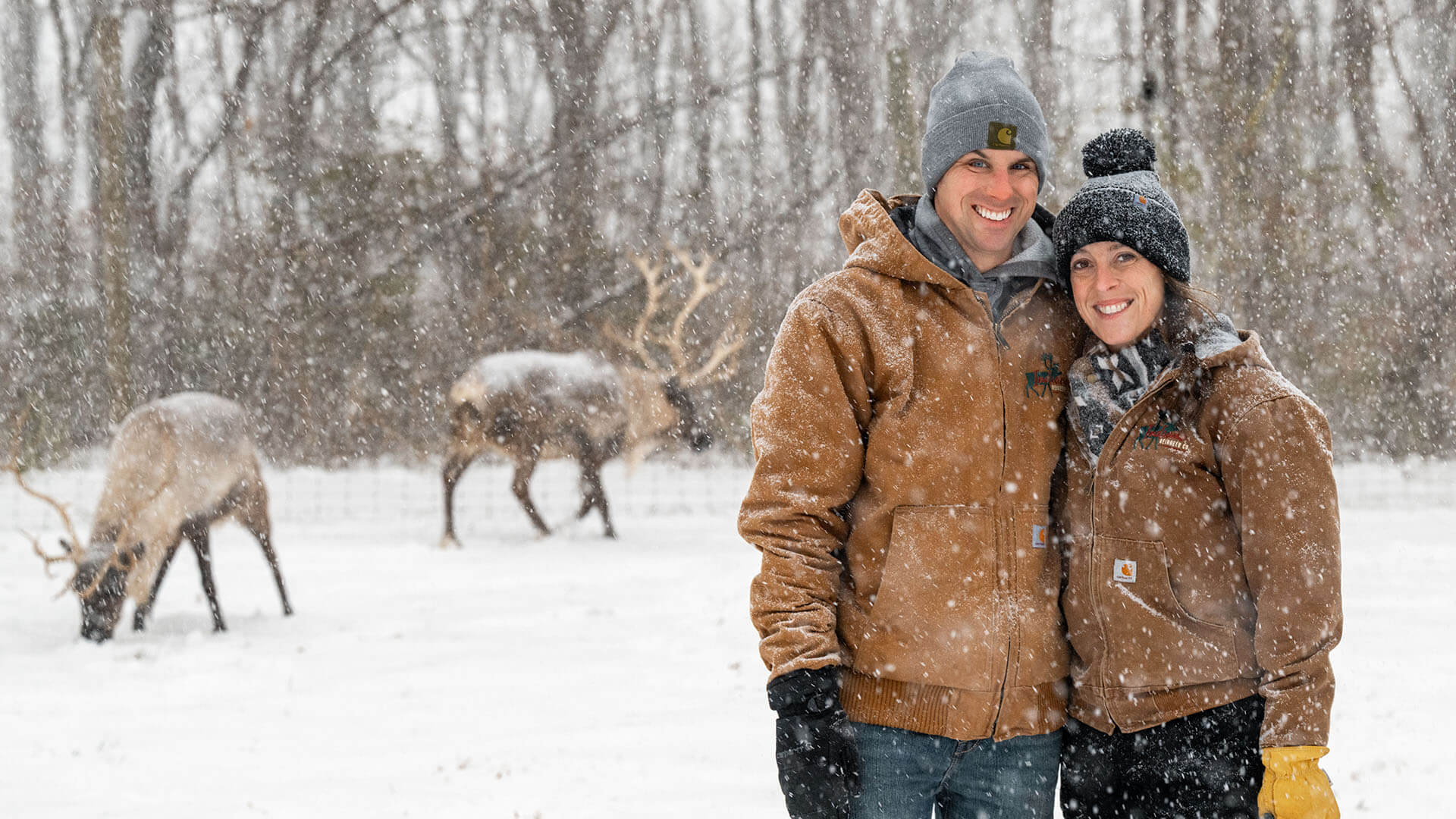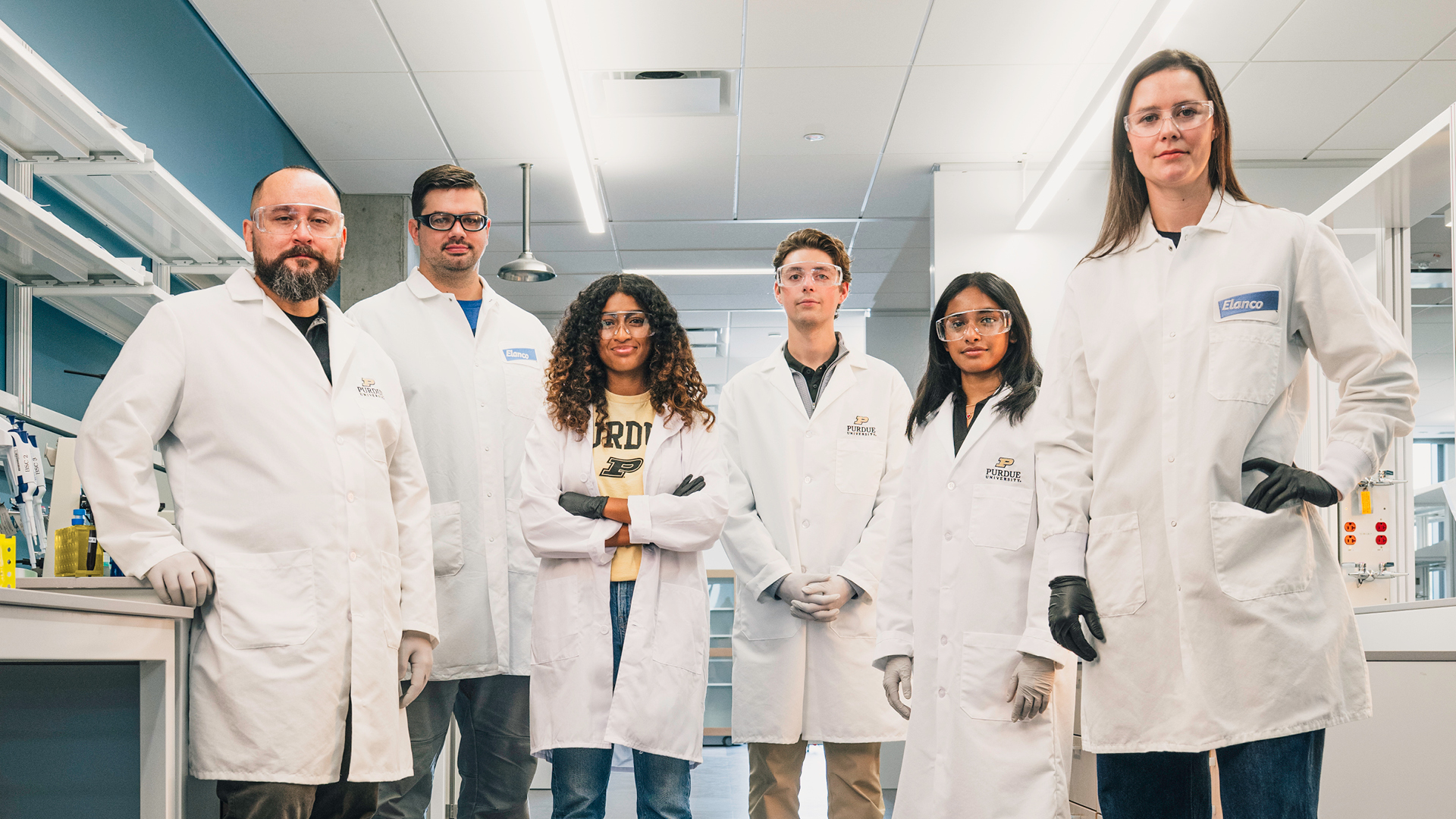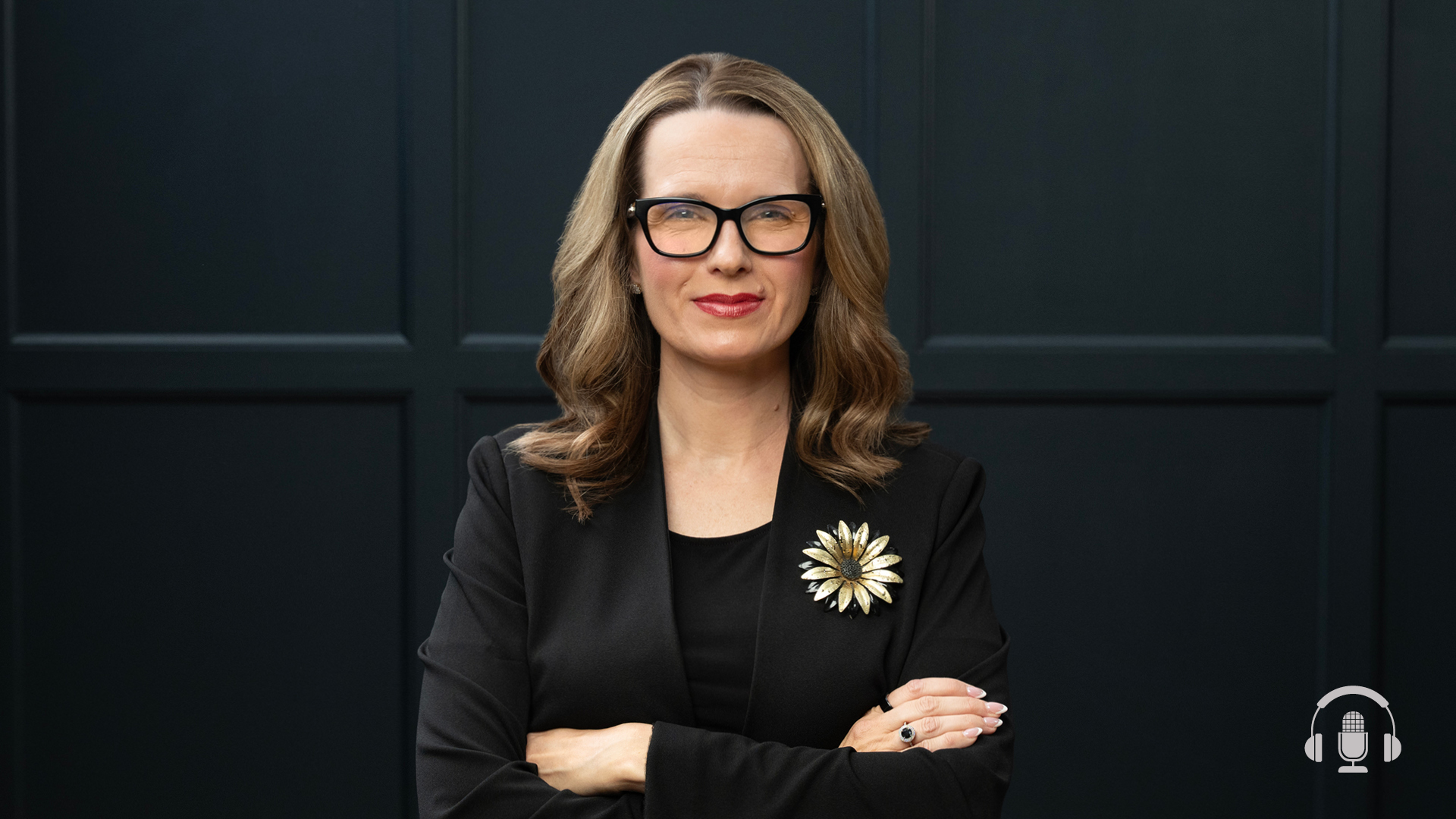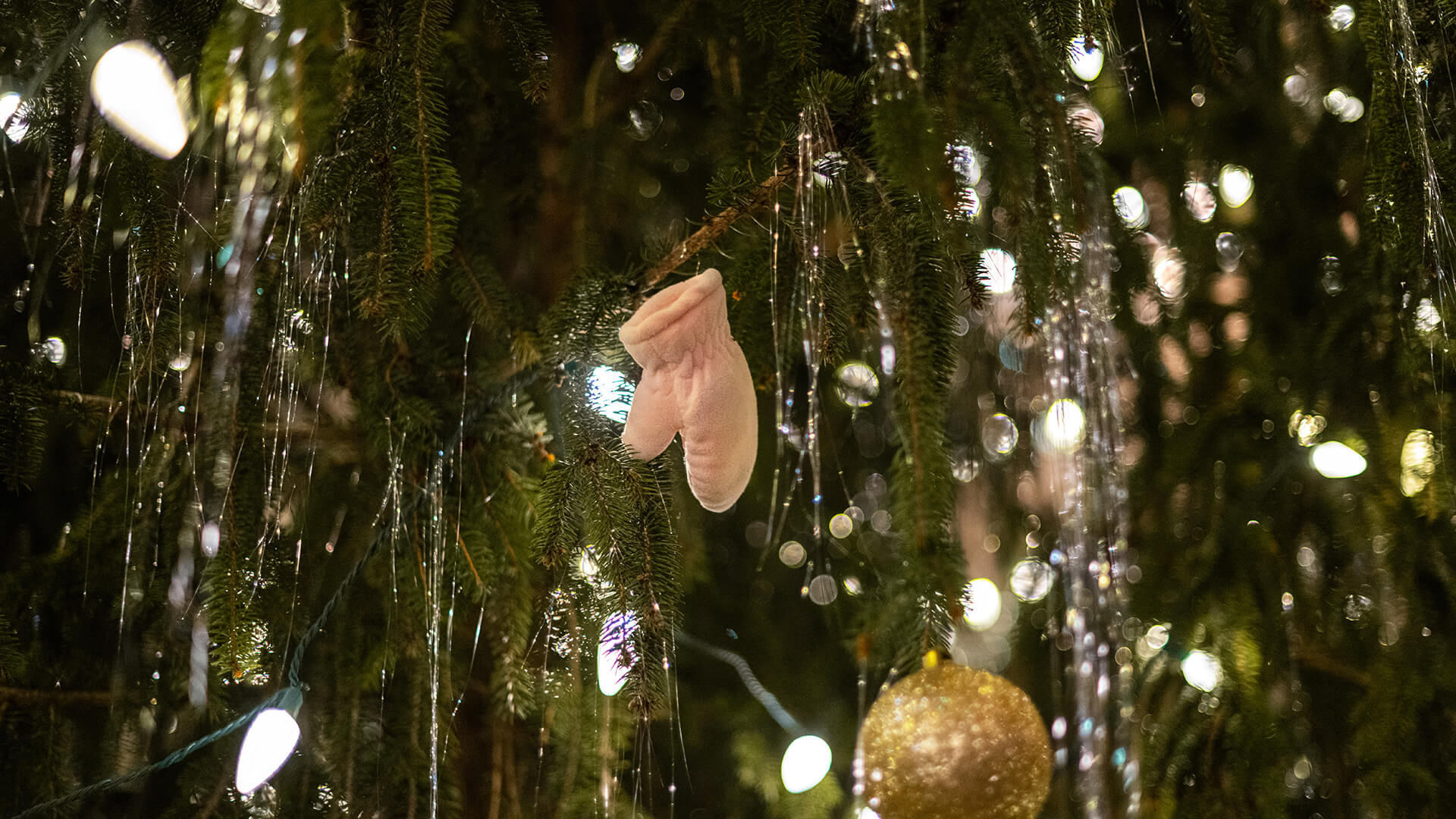Emotional glow of Purdue’s tournament run
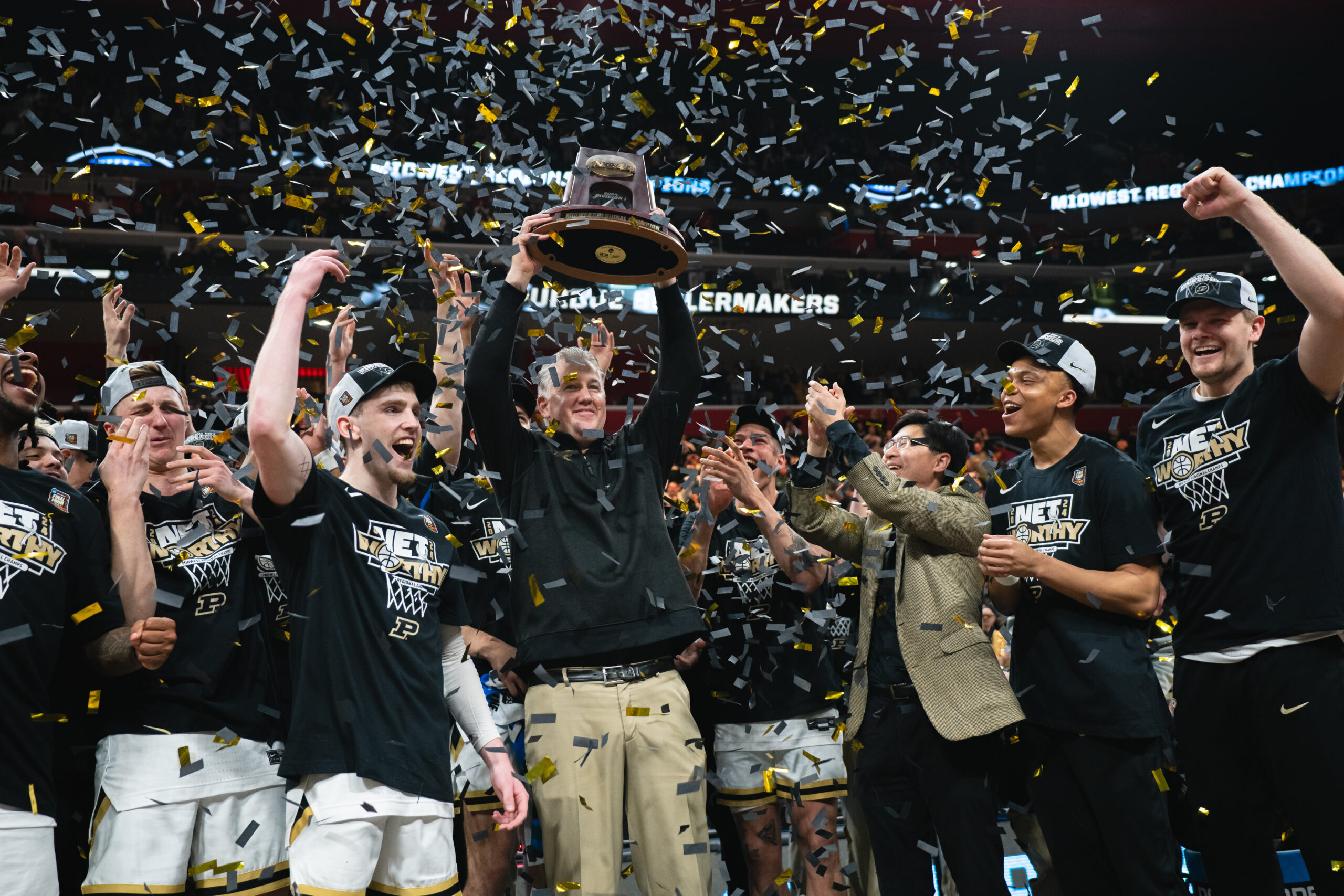
Former Purdue basketball players happy to see Matt Painter, program make long-awaited trip to the Final Four
Matt Painter is not a crier.
Matter of fact, relative to his profession, Purdue’s men’s basketball coach is as emotionless as they come, at least within public view.
He’s an analytic-minded, process-oriented, even-keeled thinker who’s seemed to grow more and more stoic the older and more experienced he’s gotten, always professorial in his approach to his job. Rarely does his emotion show, let alone overtake him.
However, shortly after his team secured its first Final Four berth since 1980 by beating Tennessee in Detroit’s Little Caesars Arena on March 31, he broke. It was the sight of Robbie Hummel that did it.
“He was already crying and that got me crying,” Painter says. “I don’t cry very much, maybe just funerals, not happy moments. I laugh during happy moments.
“But it was just something where seeing how much it meant to him … To know that somebody cares that much was pretty cool from my standpoint.”
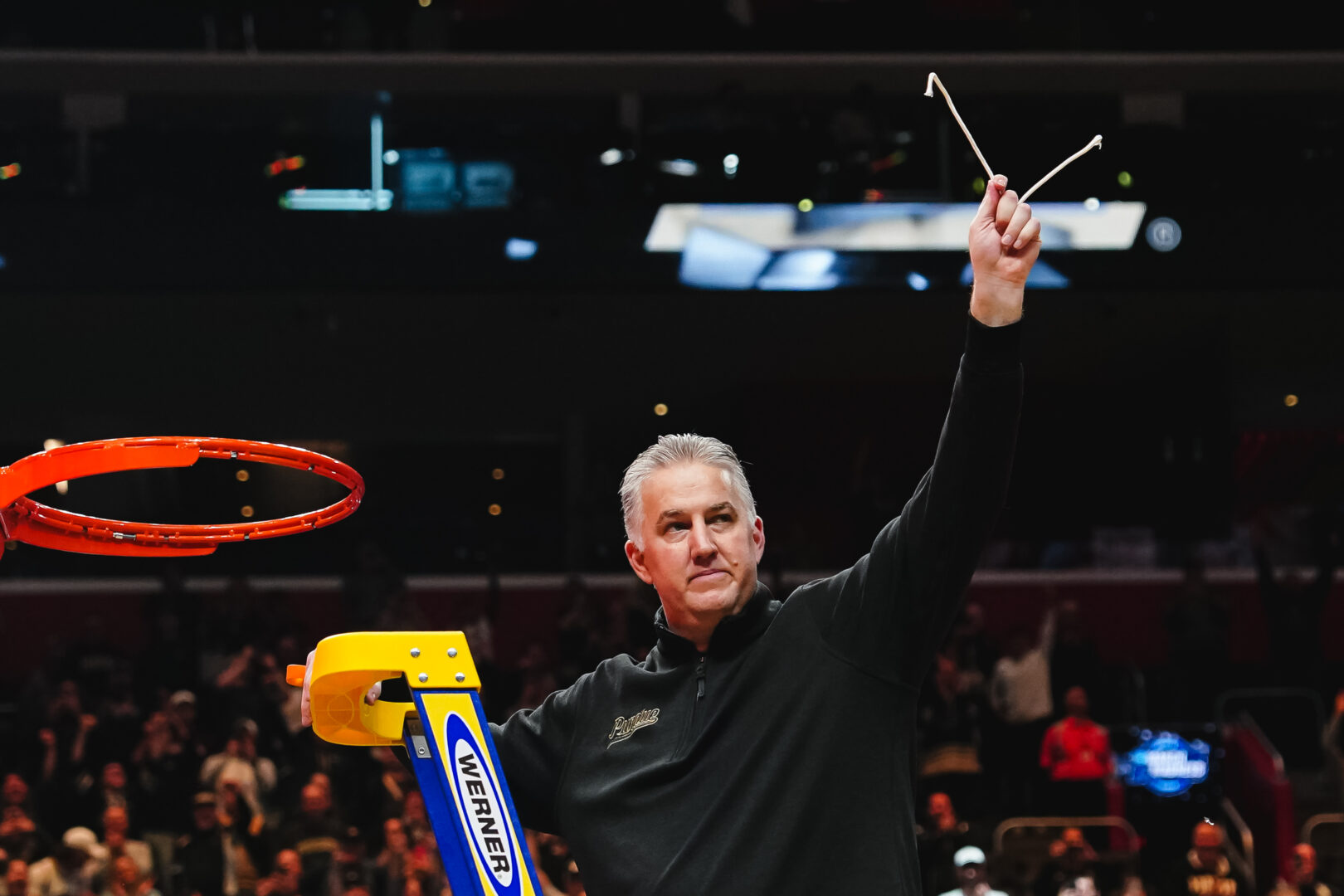
Hummel, as personally invested a Purdue basketball alumnus as there is and one of the program’s true favorite sons, was calling the game for Westwood One. Sitting courtside as the Boilermakers salted away the final moments of arguably the most monumental win in school history, Hummel himself choked up, brought to tears by the magnitude of the moment, live on radio.
Family bonds
It was a moment that beautifully encapsulated the bonds that have always existed between the Purdue program’s present and its past, connections the program has always prioritized and worked to build and maintain with those interested in remaining part of its close-knit community.
“It’s the type of people they recruit into the program,” former standout Dakota Mathias says of that collective closeness. “The sort of guys you’re bringing into the program are all very similar in that they’re blue-collar, very hard-working, good people and caring about others.
“We share those values and it’s easy to have (those bonds) that way.”
When Painter — modestly maligned through the course of this season after a “catastrophic,” as he puts it, first-round NCAA Tournament loss the year prior — had shaken Tennessee coach Rick Barnes’ hand (but not before being intercepted by a bear hug from the top player in his sport, Zach Edey), he worked his way over to Hummel to be interviewed for national radio.
At that time, Painter was reminded of 2006 or so, when Hummel and classmates E’Twaun Moore and JaJuan Johnson invested in a struggling Purdue program, a reclamation project taken on by Painter, an alumnus himself. Those players could have gone to any number of other more established winners at that time.
A week after Purdue cut down those nets to win the Midwest Regional, Moore would join many former players — and the tens of thousands of fans — who overtook Glendale, Arizona, for the Final Four. It was a moment Purdue had so long waited for and come so close to so often before finally breaking through.
“It was good to go support the school after all Purdue did for me,” says Moore, now 35 and freshly retired after a decade playing in the NBA. “It helped me achieve my dreams and my goals.
“I know when I was playing (at Purdue), I used to love seeing guys who played before come back, guys I grew up watching on TV, like Kenny Lowe, Brian Cardinal, Brad Miller and David Teague. That they were coming back and sharing some of their knowledge of the game, it was priceless.”
FaceTime from Israel
Back to that scene in Detroit, though.
After the confetti had all fallen and the tears dried, Hummel visited Purdue’s locker room, huddling with former teammate Bobby Riddell (part of the local radio team) and various Purdue coaches when a FaceTime call came in from halfway across the globe. In Israel, where he’s playing professionally, Johnson had been streaming his alma mater’s Elite Eight game.
He called Hummel to share in the celebration with his former teammate and whoever else he may pass the phone to.
“JaJuan was his usual smiley, bubbly self,” Riddell says.
Indeed.
“I was so happy for Coach Painter, for the fans, the staff, pretty much anyone affiliated with Purdue,” Johnson says from Israel. “Having been a part of it, from our (Class of 2007) Baby Boilers to what it is now, it’s incredible with Coach Painter and all those guys to see the work they’ve put in. It was a great feeling to see them get there.
“Losing in the first round last year and all the adversity those guys had to face all season long, it essentially didn’t matter what these guys did; all that mattered was what happened during the NCAA Tournament. They responded.”
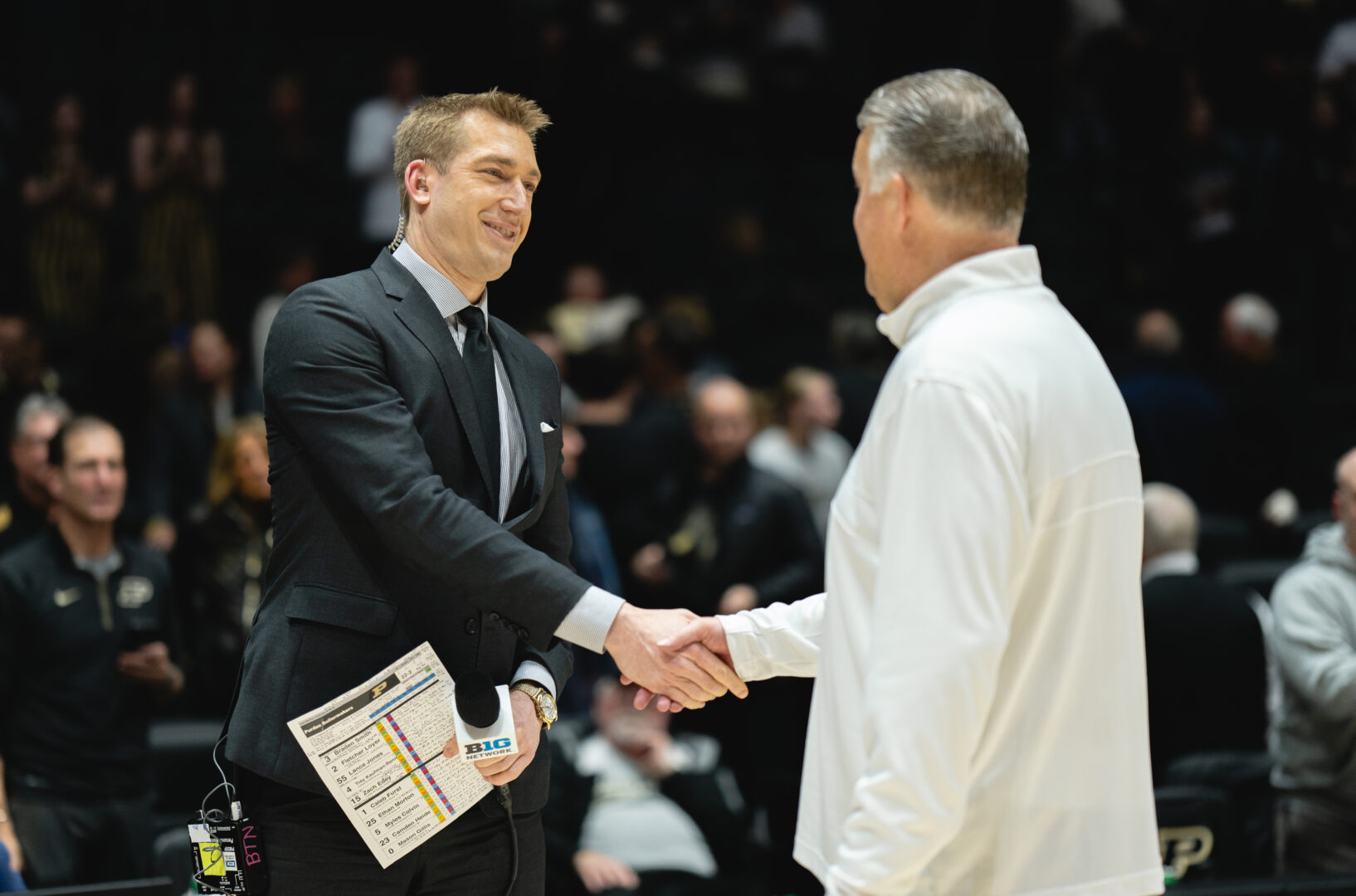
Redemption for the near misses
Johnson’s classmate and longtime friend Hummel was one of the faces of Purdue’s redemption on this day. Staff members Paul Lusk and Elliot Bloom postponed their own personal revelry after the Tennessee game to take a moment to recognize the former All-American. Hummel has long been haunted by the thought of what might have been for not just himself but for Purdue had he not suffered major knee injuries his third and fourth seasons in the program, doing irreparable harm to those teams’ credible Final Four hopes.
Those transformational Hummel-Moore-Johnson teams were denied their best shots to earn this moment themselves.
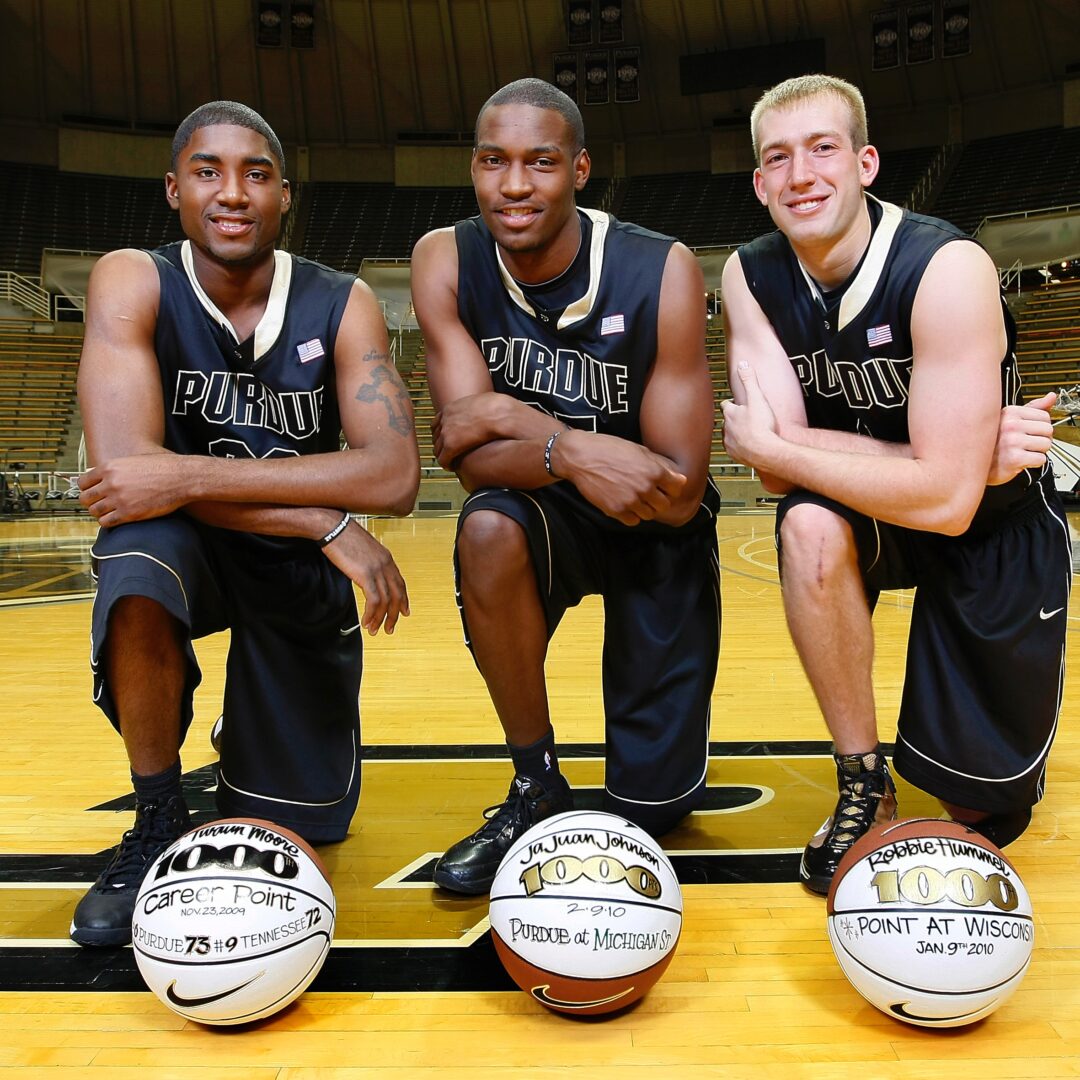
Those were two of the near misses that not only stung Purdue but also created a sense that it was only a matter of time before the glass ceiling broke.
Ryan Cline was part of the team that finished on the wrong end of one of the most improbable outcomes the tournament has ever seen. Purdue was a split second from beating eventual national champion Virginia in the Elite Eight in 2019.
For Cline, at least, he would have loved to play in the Final Four, but it was nevertheless cathartic for him to see his alma mater do it a few years later. It was a feeling of redemption.
Cline says he’s always felt a deep sense of pride toward Purdue and its championship-laden history, but now that the Final Four is part of that (modern) history, he’s walking a little taller around his native Carmel.
“I am definitely walking around with a little more swagger knowing that Matt Painter finally got what he deserved,” Cline says.
Common thread is Painter, Keady
A consensus easily prospered among these former Boilermakers who were part of those signature moments in Purdue’s postseason history. They wanted this for their college coach more than anything. And that’s been part of Purdue’s collective identity — wanting to achieve for the whole and not just the individual.
“We all kind of had that same reaction (as Hummel),” says Mathias, one of the many former Purdue players who traveled to Phoenix for the Final Four. “I think we all probably kind of teared up, just with all we’ve been through the past 10-15 years, the heartbreaks in the Tournament and all Coach Painter’s been through.”
Mathias’ senior year ended in the Round of 16 after classmate and key player Isaac Haas broke his elbow in the tournament opener, undercutting that team’s Final Four chances.
Any coach or player will say that it’s difficult to win in the NCAA Tournament.
So often, it comes down to the simplest element: luck.
To that end, Purdue has generally left much to be desired.
This year, though, it removed luck from the equation. Until its national semifinal meeting with 11th-seeded North Carolina State, the seeds all held around Purdue. To reach the national title game, it beat the best teams in its bracket, mostly decidedly.
And in so doing, it exorcised those demons of the past.
“The best thing about it was seeing it for Coach Paint,” Mathias says. “He’s caught heat for no reason from people who don’t know basketball. I think it was huge for him to be validated, which he never needed. It was awesome to see it for him, but also for the guys on that team. They’re all real Purdue guys. They play hard, they play the right way and they’re good dudes. It was the right group to do it.”
But the redemption dates back generations.
When Painter took over, he succeeded his college coach, newly minted Hall of Famer Gene Keady. It was particularly meaningful that Keady, who turned 88 on May 21, was there to be part of the moment. After Edey cut down his piece of the net, he ceremoniously brought a shred of it to Keady, another nod to the ties that have bound this program together for many years.
Keady came close during his quarter-century at Purdue. In 2000, no one wanted it more for Keady than Brian Cardinal, the consummate heart-and-soul sort of Purdue player who always spoke of Keady as a father figure.
Purdue fell a game short that year.
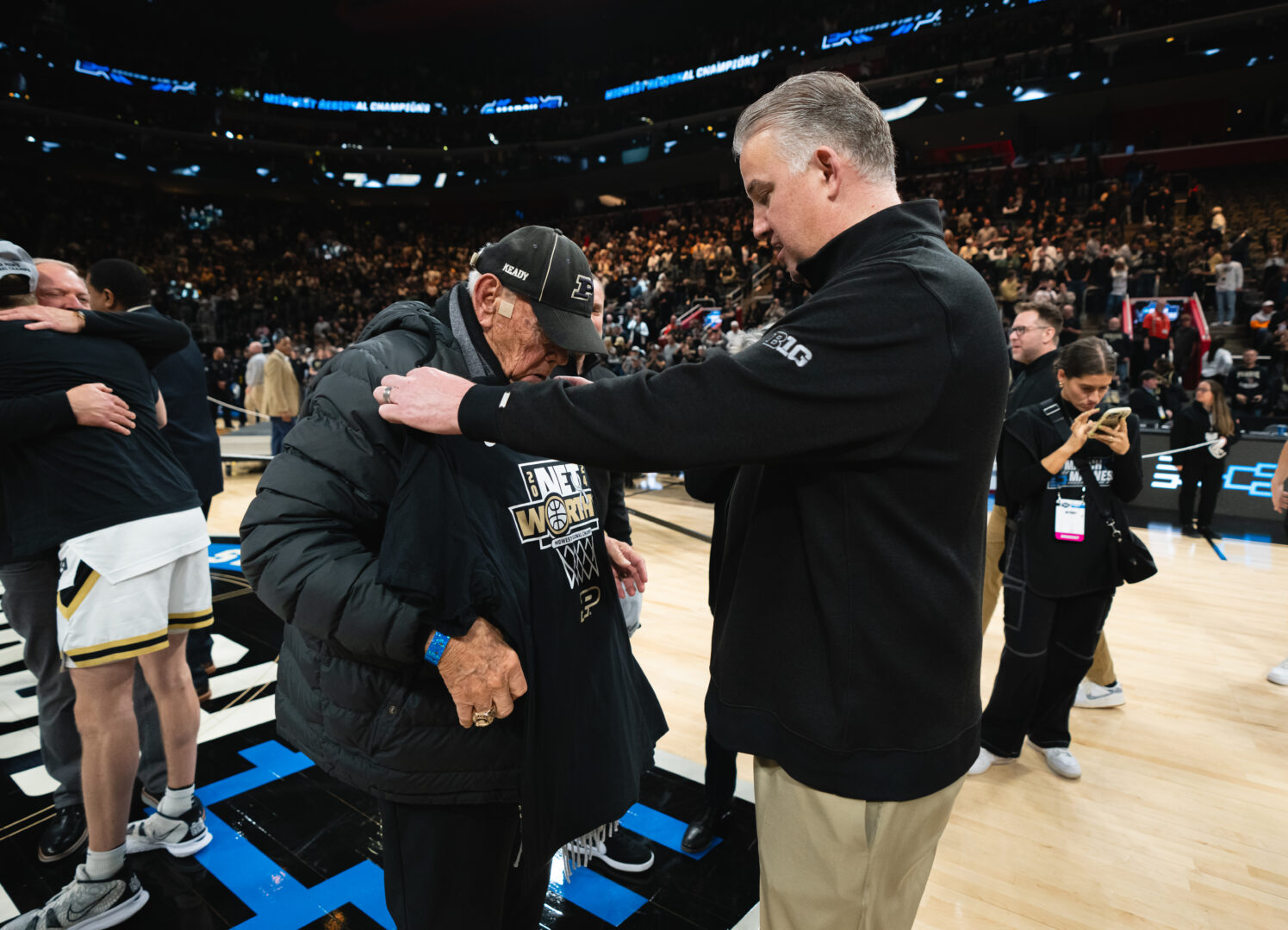
“It meant the world to me that he got to be there and be part of it,” says Cardinal, a standout from 1997-2000. “I messaged Paint and told him that one of my biggest regrets was not being able to get him there, and I’m so grateful he was able to do it and get him there.”
Former players were invested in this Purdue season as if they were still part of the program. That’s exactly how Purdue wants them to feel. They do.
The common thread among them: Wanting this achievement for Painter, the same way Cardinal long wanted it for Keady.
“He does things the right way, he’s a good person and he cares about his players in a way that’s more than just, ‘I need you to win games for me,’” says Hummel, who once lived in Painter’s house post-graduation while recovering from an injury. “That doesn’t sound like it should be that hard, but in the current landscape of college basketball, that’s definitely not the norm.
“He’s gone above and beyond for so many guys behind the scenes and done so much for the guys he’s coached. When you look at him as a basketball mind, he’s brilliant. The way he thinks (of) the game, he just lives it. … I think he was meant to be this. He was meant to be the coach at Purdue.
“This was something that was always in the cards for him. He’s unbelievable as a coach but even better as a person. And when you treat people the right way, people root for you, and there’s no doubt people were rooting for him and Purdue to do this.”
By Brian Neubert, BNeubert@GoldandBlack.com

